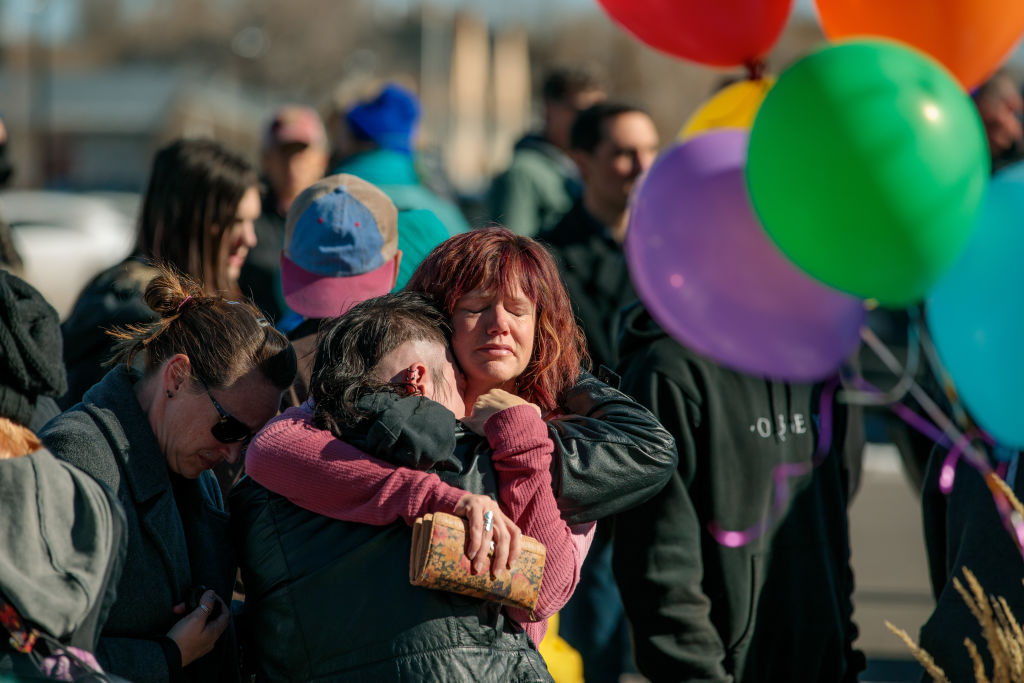
This article is part of The D.C. Brief, TIME’s politics newsletter. Sign up here to get stories like this sent to your inbox.
A bullet doesn’t make a sound.
It makes the initial roar as it leaves the gun, sure. Its shock to the body is matched with a spiteful slap to the eardrum. The noise can expand if it echos, as is often the case when fired in a closed space, like a school hallway in Newtown, Conn., a basement Bible study in Charleston, S.C., or the foyer of a synagogue in Pittsburgh. The shell casing can make its own distinct sound, whether it bounces on the linoleum floor of a school classroom in Uvalde, Texas, or is muffled in the carpet 32 floors above the Las Vegas Strip. And the reverberations can last years, especially for survivors who just wanted to get through Valentine’s Day in Parkland, Fla., or to find their safe space in Orlando.
And then there is the second-wave reverberation, a history lesson that tells us that any conversation about trying to quiet the ear-shattering explosion of each bullet is pointless, that ultimately nothing can be done about guns in a country that has more weapons than citizens.
So, as is the case far too often, the screech of yet more bullets established America’s latest soundtrack over the weekend as a gunman burst into a Colorado Springs gathering place for members of the LGBTQ community Saturday night, opening fire to kill five and injure at least 18 more. A suspect is being held on preliminary charges of murder and hate crimes, but those are subject to change as more is learned about him. Officials have been careful not to assign a motivation just yet to the attack on Club Q. But it stretches credulity to think the suspect in this case just happened to show up heavily armed and wearing body armor at one of the few places in the Springs where gay people—including teens on some evenings—felt comfortable.
It also demands an aggressive suspension of suspicion to think the current national environment toward LGBTQ rights has no bearing when a 22-year-old man allegedly walks into a gay bar and starts killing. This legislative season alone, lawmakers have introduced at least 344 anti-LGBTQ proposals, and 25 of them are now law, according to the Human Rights Campaign. The most common headlines around this onslaught of legislation has been to keep transgender youths from pursuing health care, playing sports on the teams of their choosing, or even identifying themselves in schools—very controversial efforts if you spend much time in the conservative corners of the internet when one can simultaneously lament Caitlyn Jenner’s persecution and obsess over a University of Pennsylvania swimmer in the same burst of online outrage. Nothing, especially targeted executions, happen in a vacuum.
Flags in Colorado are flying at half their height and vigils are popping up around the typically conservative city of Colorado Springs. The pain’s manifestation is sincere, but the follow-up probably will be a faint echo of it. Mass shootings often summon rage about why policymakers didn’t anticipate this, gnashing about how to stop the next slaying, recriminations about the power of gunmakers and retailers and sportsman groups that have been co-opted for political machinations. But one thing remains louder than all of that chatter, and that’s the many sounds of bullets.
I spend a lot of time in the days after such mass killings reconstructing the details of these evenings and considering the prospects of legislative relief. Often, I will send notes and texts to lawmakers, furtively asking what Washington will be doing in response, and, in a performative way, everyone pretends that this time will be different. The optimism for restrictions grows dimmer every time, the time frame for such talk grows narrower. Every passing hour makes any meaningful adaptation less urgent; that half-life used to be measured in weeks, not commercial breaks. All the while, it’s impossible not to imagine what it must have been like—the sound of each bullet ripping through the rooms, the bodies, the lingering echo of the crime scenes.
It is as deafening as it is depressing.
Make sense of what matters in Washington. Sign up for the D.C. Brief newsletter.
More Must-Reads from TIME
- Donald Trump Is TIME's 2024 Person of the Year
- Why We Chose Trump as Person of the Year
- Is Intermittent Fasting Good or Bad for You?
- The 100 Must-Read Books of 2024
- The 20 Best Christmas TV Episodes
- Column: If Optimism Feels Ridiculous Now, Try Hope
- The Future of Climate Action Is Trade Policy
- Merle Bombardieri Is Helping People Make the Baby Decision
Write to Philip Elliott at philip.elliott@time.com